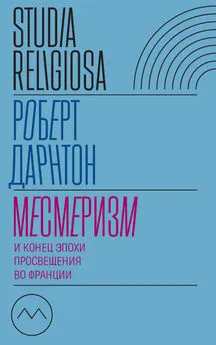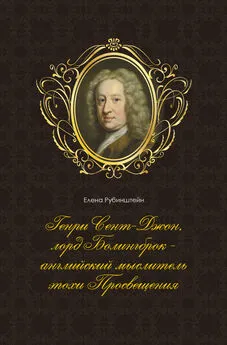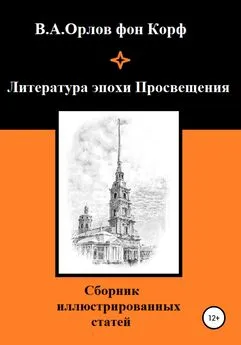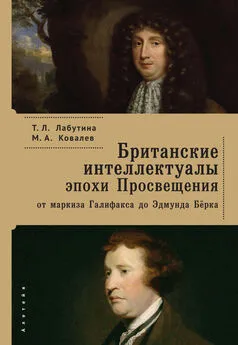Ларри Вульф - Изобретая Восточную Европу: Карта цивилизации в сознании эпохи Просвещения
- Название:Изобретая Восточную Европу: Карта цивилизации в сознании эпохи Просвещения
- Автор:
- Жанр:
- Издательство:Новое литературное обозрение
- Год:2003
- Город:Москва
- ISBN:5-86793-197-8
- Рейтинг:
- Избранное:Добавить в избранное
-
Отзывы:
-
Ваша оценка:
Ларри Вульф - Изобретая Восточную Европу: Карта цивилизации в сознании эпохи Просвещения краткое содержание
В своей книге, ставшей обязательным чтением как для славистов, так и для всех, стремящихся глубже понять «Запад» как культурный феномен, известный американский историк и культуролог Ларри Вульф показывает, что нет ничего «естественного» в привычном нам разделении континента на Западную и Восточную Европу. Вплоть до начала XVIII столетия европейцы подразделяли свой континент на средиземноморский Север и балтийский Юг, и лишь с наступлением века Просвещения под пером философов родилась концепция «Восточной Европы». Широко используя классическую работу Эдварда Саида об Ориентализме, Вульф показывает, как многочисленные путешественники — дипломаты, писатели и искатели приключений — заложили основу того снисходительно-любопытствующего отношения, с которым «цивилизованный» Запад взирал (или взирает до сих пор?) на «отсталую» Восточную Европу.
Изобретая Восточную Европу: Карта цивилизации в сознании эпохи Просвещения - читать онлайн бесплатно полную версию (весь текст целиком)
Интервал:
Закладка:
656
Madam Geoffrin; Stanislas-Auguste. P. 242–244.
657
Ibid. P. 349.
658
Martin. P. 35.
659
Poniatowski Stanislas-Auguste. Mémoires de roi Stanislas-Auguste Poniatowski. Vol. St. Petersburg: l’Académie Impériale des Sciences, 1914. P. 567–568.
660
Martin. P. 53–54; Fabre. P. 305.
661
Ségur Pierre. Le Royaume. P. 273–274.
662
Ibid. P. 230, 461.
663
Rousseau. P. 259.
664
Martin. P. 76.
665
Madam Geoffrin; Stanislas-Auguste. P. 250.
666
Ibid. P. 276.
667
Ibid. P. 265–274, 294.
668
Ibid. P. 315–316.
669
Ibid. P. 321, 329.
670
Ibid. P. 355.
671
Ibid. P. 364.
672
Ibid. P. 365–366.
673
Ibid. P. 326–327, 336.
674
Ibid. P. 349, 379–380.
675
Ibid. P. 359, 382, 387, 432.
676
Ibid. P. 349, 379–380.
677
Ibid. P. 443.
678
Ibid. P. 451, 456.
679
Ibid. P. 464–466.
680
Ibid. P. 470–471, 475–477
681
Rousseau. P. 172.
682
Voltaire. Candide. Trans. John Butt. London: Penguin, 1974. Chapter 26; Dzwigala Wanda. Voltaire’s Sources on the Polish Dissident Question // Studies on Voltaire and the Eighteenth Century. Vol. 241. Oxford: Voltaire Foundation, 1986. P. 191–192; Rostworowski Emanuel. Républicanisme ‘Sarmate’ et les Lumières // Studies on Voltaire and the Eighteenth Century. Ed. Theodore Besterman. Vol. XXVI. Geneva: Institut et Musée Voltaire, 1963. P. 1417; Fabre. P. 316; см. также: Kot Stanislaw. Rzeczpospolita Polska w literaturze politycznej Zachodu. Cracow: Nalladem Krakowskiej Spólki Wydawniczej, 1919; Woloszynski Ryszard W. La Pologne vue par l’Europe au XVIIIe siècle // Acta Polonica historica (1965). P. 22–42; Woloszynski Ryszard W. Polska w opiniach francuzów: Rulhière i jego wslczesni. Warsaw: Panstwowe Wydawnictwo Naukowe, 1964.
683
Voltaire. Essai historique et critique sur les dissensions des églises de Pologne (1767) // Oeuvres de Voltaire: Mélanges historique. Vol. II. Paris: P. Pourrat Freres, 1968. P. 57–60; Fabre. P. 634, примеч. 144.
684
Rostworowski Emanuel. Voltaire et la pologne // Studies on Voltaire and the Enighteenth Century, ed. Theodore Besterman. Vol. LXII. Geneva: Institut et Muse Voltaire, 1968. P. 114; Fabre. P. 323.
685
Voltaire. Discourse aux confédérés catholiques de Kaminieck en Pologne, par le major Kaiserling, au service du roi de Prusse (1768) // Oeuvres de Voltaire: Politiques et Législation. Vol. II. Paris: P. Pourrat Freres, 1839. P. 154, 165–166.
686
Voltaire and Catherine // Correspondence, in Documents of Catherine the Great: The Correspondence with Voltaire and the Instruction of 1767. Ed. By W.F. Reddaway (1931; New York: Russell à Rusel, 1971). P. 109; Dzwigala. P. 198.
687
Marat Jean-Paul. Les Aventures du jeune comte Potowski. Ed. Claire Nicolas-Lelièvre. Paris: Renaudot, 1989. P. 118, 130.
688
Tomaszewski Marek. L’Universe héroique polonaise dans Les Amours du chavalier de Faublas et son impact sur l’imaginaire social à la fin due XVIIIe siècle // Revue de Littérature Comparée, no. 2 (April — June 1990): 430–431.
689
Voltaire. Les Lois de Minos, in Oeuvres complètes de Voltaire. Vol. 5, Théatre. Paris: Perronneau, 1817. P. 296.
690
Fabre. P. 249.
691
Marat. Les Aventures. P. 256; Dzwigala. P. 201; M. Romain-Cornut. Koltaire: complice et conseiller du partage de la Pologne, 2 nded. Paris: Jacques Lecoffre, 1846. P. 17–21.
692
Jobert Ambrois. Magnats polonaise et physiocrates française (1767–1774). Paris: Librarie Droz, 1941. P. 20.
693
Jobert. P. 51, 86; Wolff Larry. The Vatican and Poland in the Age of the Partitions: Diplomatic and Cultural Encounters at the Warsaw Nunciature. New York; Boulder: Columbia Univ. Press, East European Monographs, 1988. Chapter VII.
694
Jobert. P. 24–27.
695
Ibid. P. 27–32.
696
Ibid. P. 36–38; см. также: Opalek Kasimir. Les Physiocrates et leur role dans le renouveau culturel au siècle des Lumières en Pologne // Pierre Francastel (ed.) Utopie et Institutions au XVIII siècle: Le Pragmatism des Lumières. Paris and the Hague: Mouton: 1963. P. 169–184.
697
Jobert. P. 45–48; Rousseau. P. 220.
698
Jobert. P. 57; Wolff. Chapter V.
699
Jobert. P. 60–62.
700
Ibid. P. 64–66.
701
Ibid. P. 67–71.
702
Ibid. P. 72–73.
703
Ibid. P. 79–82.
704
Smith Adam. The Wealth of Nations. London: Penguin, 1982. P. 345–346.
705
Ibid. P. 308.
706
Rulhère Claude Carloman de. A History or Anecdotes of the Revolution in Russia in the Year 1762. London, 1797; rpt. New York: Arno Press; New York Times, 1970. P. 1.
707
Chevalier Alice. Claude-Carloman de Rulhère, premier historien de la Pologne: sa vie et son oeuvre historique. Paris: Les Editions Domat-Montchrestien, 1939. P. 105–114; Ségur. Le Royaume. P. 220–224.
708
Rulhère. A History or Anecdotes of the Revolution in Russia, P. viii— xi, 52; Chevalier. P. 74, 115–116.
709
Chevalier. P. 43–44.
710
Rulhère Claude Carloman de. Revolutions de Pologne. Vol. I. Paris: Librairie de Firmin Didot Frères, 1862. P. 1.
711
Rulhère. Revolutions de Pologne. Vol. I. P. 6–7.
712
Chevalier. P. 121–122.
713
Ibid. P. 152–154.
714
Ibid.
715
Ibid. P. 155.
716
Ibid. P. 160–162, 166, 175.
717
Ibid. P. 233, 330–333.
718
Casanova Giacomo. Istoria delle Turbulenze della Polonia. Naples: Guida Editori, 1974. P. 100, 447.
719
Casanova. P. 54; Chevalier. P. 250; Fabre. P. 7.
720
Chevalier. P. 244, 295.
721
Ibid. P. 168–169, 182–183.
722
Ibid. P. 372–380.
723
Fabre. P. 571, примеч. 42.
724
Marquis de Sad. Aline et Valcour // Oeuvres. Vol. I. Paris: Gallimard, 1990. P. 852–853.
725
Fabre. P. 510; см. также: Rostworowski Emanuel. Ostatni Król Rzeczeposoplitej: geneza i upadek konstytucji 3 maja. Warsawa; Wiedza Powszechna, 1966.
726
Handelsman Marcel. La Constitution polonaise du 3 mai 1791 et l’opinion française // La Revolution Française. Vol. LVIII. Paris, 1910. P. 416, 425, 429, 433.
727
Fabre. P. 27, 575, примеч. 28.
728
Anderson M.S. Britain’s Discovery of Russia 1533–1815. New York: St. Martin’s Press, 1958. P. 165–169.
729
Lortholary. P. 263; Anderson. P. 193; Arnold Robert. Geschichte der Deutschen Polinlitteratur: von den Anfogen bis 1800. Halle: Max Niemeyer, 1900. P. 168.
730
Camblee Thomas. Poland // David Perkins (ed.), English Romantic Writern. New York: Harcourt, Braceà World, 1967. P. 603.
731
Lortholary. P. 263–264.
732
Vigée-Lebrun Elizabeth. The Memoirs of Elizabeth Vigée-Le Brun (Bloomington: Indiana Univ. Press, 1989). P. 161, 189; Mohrenschildt Dmitri von. Russia in the Intellectual Life of Eighteenth-Century France. New York: Columbia Univ. Press, 1936. P. 25–26.
733
Vigée-Le Brun. P. 208–366; Fabre. P. 552.
734
Cobberr William. Letters to the Right Honourable Lord Hawksbury, 2 nded. London: Cobbett and Morgan, 1802. P. 82.
735
Kennan George. Memoirs 1925–1950. New york: Pantheon Books, 1967. P. 29–30.
736
Cobbett. P. 83.
737
Kennan. P. 26.
738
Iorga Nicolae. Les Voyageurs Française dans l’Orient Europen. Paris: Boivin, 1928. P. 105.
739
Peyssonnel Charles de. Observation historiques et géographiques, sur les peuples barbares qui ont habit les bords du Danube à du Pont Euxin. Paris: Chez N.M.Tillard, 1765. P. 1–2.
740
Ibid. P. 4–7.
741
Ibid. P. 30.
742
Ibid. P. 39.
743
Ibid. P. 50–51.
744
Ibid. P. 194–195.
745
Vaugondy Rober de. Atlas Universel. Vol. 1 Paris, 1757. Maps 4, 12.
746
Anville Jean-Baptiste d’. A Complete Body of Ancient Geography. London: Robert Sayer, 1771. Maps 1, 3.
747
Hartog Franois. The Mirror of Herodotus: The Representation of the Other in the Writing of History. Trans. Janet Lloyd. Berkeley: Univ. of California Press, 1988. P. 30.
748
Lortholary Albert. Le Mirage russe en France au XVIIIe siècle. Paris: Boivin, 1951. P. 297, note 87; Gyergyai Albert. Un correspondant hongrois de Voltaire: le comte Fekete de Galanta // Studies on Voltaire and the Eighteenth Century. Vol. 25. Ed.Theodore Besterman. Geneva: Institut et Musée Voltaire, 1963. P. 789.
Читать дальшеИнтервал:
Закладка:
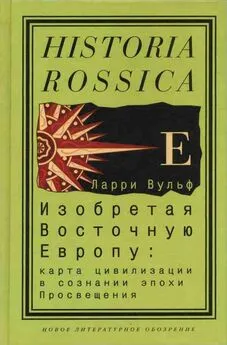

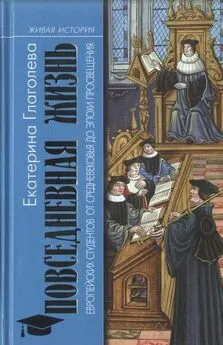
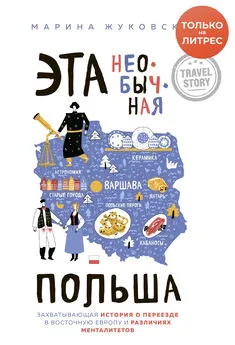
![Татьяна Лабутина - Британские интеллектуалы эпохи Просвещения [от маркиза Галифакса до Эдмунда Берка]](/books/1064514/tatyana-labutina-britanskie-intellektualy-epohi-pr.webp)
![Жорж Вигарелло - История тела Том 1 [От Ренессанса до эпохи Просвещения]](/books/1081515/zhorzh-vigarello-istoriya-tela-tom-1-ot-renessansa-d.webp)
![Филипп Арьес - История частной жизни Том 3 [От Ренессанса до эпохи Просвещения]](/books/1082541/filipp-ares-istoriya-chastnoj-zhizni-tom-3-ot-renes.webp)
